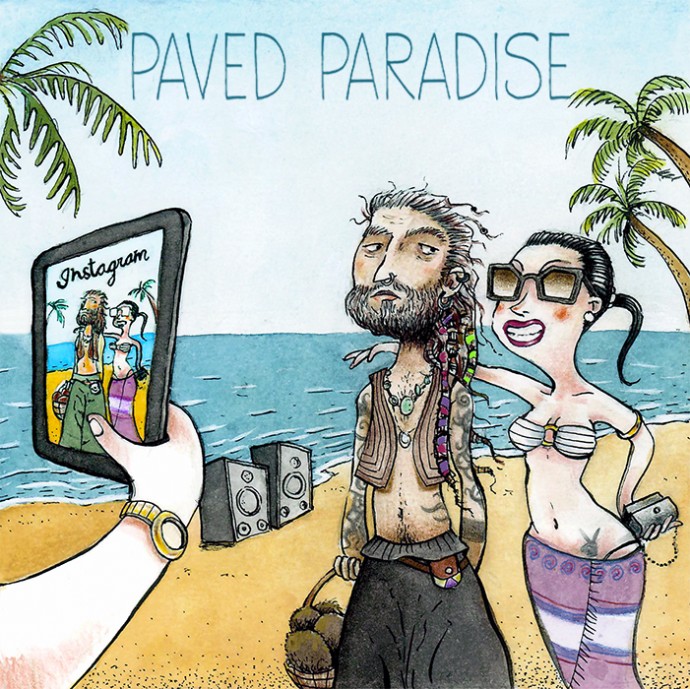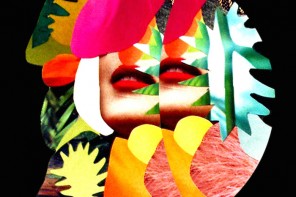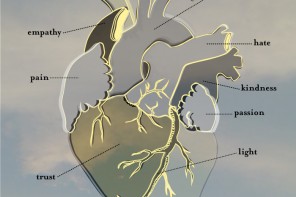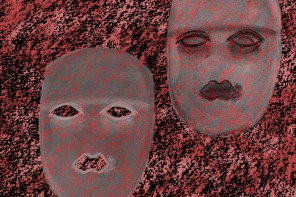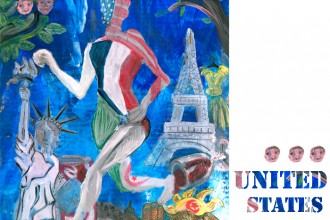Red dust clouds rise. Feet stomp and shuffle to a 180 bpm track. Speakers pound an enormous sound while fluorescent coconut trees sway in the gentle breeze. The moon caresses your skin and its light reflects off of the glistening sand. The sea dances with your soul as your body flows to the beats. When the sun rises, smiling faces acknowledge the beauty of love, music, dance, and esoteric existence decoded in psychedelic trance. Life in Goa is unique. It is an alternative, close-knit community that indulges in partying and living freely. The party lifestyle in Goa evolved from live gigs in the seventies, to reggae, then rock and then took a plunge into the electronic world in the late eighties. As Goa is now a top tourist destination, many travellers scoff at the idea of visiting. They would prefer to see the ‘real’ India and are not interested in commercial Goa. However, what they are not aware of is the unique underground heritage and history that made Goa what it is today. An original Goa kid tells Sensa Nostra the tale of the rise and fall of Goa, its environment, its people, its music, and the beautiful eccentric life on the Konkan coastal region of India.
Back in the day, Goa was a freak’s paradise. We called ourselves freaks because we chose to live outside the conformity of society. Though most people would label us as ‘hippies’, we refered to ourselves as freaks. It was a haven for the flower generation that wanted to live in freedom and peace, to rebel against society and its expectations. The first arrival of freaks was sometime in the sixties. At the time, Goa was fighting for independence from the colonial rule of the Portuguese. The first freaks settled on the pristine beaches and lived in huts. They formed a community based on mutual respect, freedom, peace, and love. As it was such a wonderful lifestyle, Goa rapidly gained an international reputation as a hippie’s paradise. After the Beatles visited India, it became a trend for people to travel to the country for its cultural diversity and fascinating spirituality. This trend helped establish the state’s reputation as a resting place from the chaotic world of India. Many people travelled to Goa before exploring the rest of the country, but it was so nice they just got stuck there.
In the seventies there was a bus that travelled from Amsterdam to Goa. This bus was filled with young, adventure-thirsty freaks looking for paradise. It was this generation that decided to settle down and live the life they dreamed of. As time passed, more and more people travelled and stayed. Slowly, a bigger community of Goa freaks emerged. There has always been international attraction to Goa. Although the first settlers were predominantly Californian, Goa attracted freaks from all over the world. I grew up hearing Italian, French, German, English, Spanish, and of course the native tongue, Konkani. The first settlers began to get together and make beautiful flower children. This was an ideal place for a kid to explore the first years of life. Long days on the beach, melting sunsets, jungles, motorbikes, awesome food, exotic fruits, and an eclectic group of kids with whom to play and be wild.
I was born in the early eighties on the second day of a three-day party. My father was dancing when my mother went into labour. He rushed back to our Portuguese-style house when he heard the news. A friend of my mum came to the party looking for the midwife. She was found tripping and dancing by the speakers. As she was the only midwife around at the time, they rushed to the house to prepare for my birth. The midwife told a helper what to do while she had a quick nap to refresh her mind. A few hours later, I was ready to greet the world. The midwife did a great job. I was delivered with no complications and welcomed into a most wonderful world. The news got out that I had arrived and people came to the house with offerings of candles and flowers. I was born into the world with so much love. The vibe must have been ecstatic.
Being a Goa kid was not all easy, however. Well, it was in a way. We grew up with a very alternative culture and we were raised eating very fresh, healthy foods. We did not know the meaning of racism. We learned to love the world and to appreciate life. We grew up knowing both riches and poverty. We were very sheltered from the evils of society. For me, this was the only aspect that made us less ‘grown-up’ compared to our fellow first-world kids. However, we were well-travelled, multilingual and well-versed in getting stoned. Much of society would frown upon the upbringing I’ve had, but I would not change it for anything in the world. The part that made being a Goa kid difficult was realising that the rest of the world disagreed with our lifestyle. And yes, drugs do play a part in our life. However, for us, drugs were normal in the same way that parents of first-world kids have friends over for a few social drinks. It did not make our parents love us less, mistreat us, or neglect us. (Well, there are always a few such cases in all types of communities.) There was so much love and mutual respect between kids and their parents. They also taught us how to take drugs responsibly when we came of age. Living in such an open environment made childhood quite pleasant—well, for me at least. It was beautiful.
I remember back in the early nineties, the beaches were clean. There wasn’t as much tourism apart from the odd traveller stopping by. When there was a party organised, it was free. Nowadays they make you pay and that just makes it ugly. It has become a business. Before it was about having a great time, uniting and dancing to the universal music. We kids would go to the party spot (in the jungle or on the beach) in the afternoon and paint the trees with fluoro colours. The older kids would do more intricate design using fluoro-coloured string. They would make geometric patterns with the string in between trees and hang up fluoro batik artworks. The sound guys would come and set up the speakers and make sure the generator would be working and ready to rock. The electricians would come and set up the black lights. We would all contribute to make the party happen. It was for free or donation-based.
At the first parties, there would be free drinks and food for everyone. They would dig holes in the sand and light them with candles. Mats were placed on the ground for those that wanted to chill under the starry night. As time moved on, the music progressed, as did the people. The new electronic music came from Berlin and played on the shores of Goa. Over time, Goa attracted all kinds of disk jockeys and Goa music progressed into what we know of as today’s psy-trance, Goa-trance, forest and dark psy.
In the mid-nineties, Goa was at its peak. The parties would attract tens of thousands of international ravers. There was an influx of Israelis, who came after finishing their military service. It was around this time that Goa was overrun with commercialization. There would be around seven parties per night. Some would continue non-stop for three days. This was when mafia and organised crime began to taint the beaches of Goa. As the popularity of party life grew, so did the concept of profit. The government resented the fact that Goa was now becoming a drug state and blamed the hippies. It did not stop the politicians from making profits. This was also when the locals began to cash in. The parties would always help out the locals, allowing them to sell chai, cigarettes, OCB papers, and snacks. Slowly, but surely, the scene just exploded into a money-making business and Goa was beginning to lose herself. And the ‘party’, which was once looked forward to, began to be feared by the locals themselves.
In 2013, we still have pretty awesome times, but the communal feeling is lost. Now, you have to pay an entry fee. Due to government regulations, these parties must be held in venues that have a licence to play loud music. The concept of a free party is lost. This really changes the vibe, and Goa is not what it used to be. To me it feels like Goa has been raped by domestic tourists, international chartered flights, and ignorant locals just looking for a profit rather than preserving the beauty and simplicity that is Goa. The beautiful essence of our land has been sold to greed. Developers from Delhi and Mumbai come and exploit Goa. They build horrible, badly-made hotels for a fast buck. This really saddens me. Even if the legacy of Goa has grown exponentially internationally and has inspired massive festivals such as Boom, Voov, Ozora and Sonica, Goa herself has been neglected. In a way, it’s fantastic that the whole world can experience a sample of what an old-time Goa party would have been like. That makes me proud and very happy. However, my heart resents that the beautiful beaches we grew up on are now exploited by the tourism industry, full of garbage, and frequented by people with bad vibes. As most of the old freaks are dying out or moving away, a group of posers have proclaimed Goa as their own, which is just sad.
What makes Goa so incredibly special is intangible. It cannot be described in words nor can it be depicted in art. It is something so magical and deeply rooted within every Goa kid. Our memories are golden. Nothing beats growing up in Goa. Even though today it is an entirely different story, Goa still has much to offer. Goa is still a wonderful place that has an incredible Konkan culture, diverse flora and fauna and a laid-back atmosphere. It is a must-see before it becomes a city. When visiting Goa, respect it and she will respect you. Go there to pay homage to the land of psychedelic trance before, as the old hippie song goes, they pave paradise to put up a parking lot.

